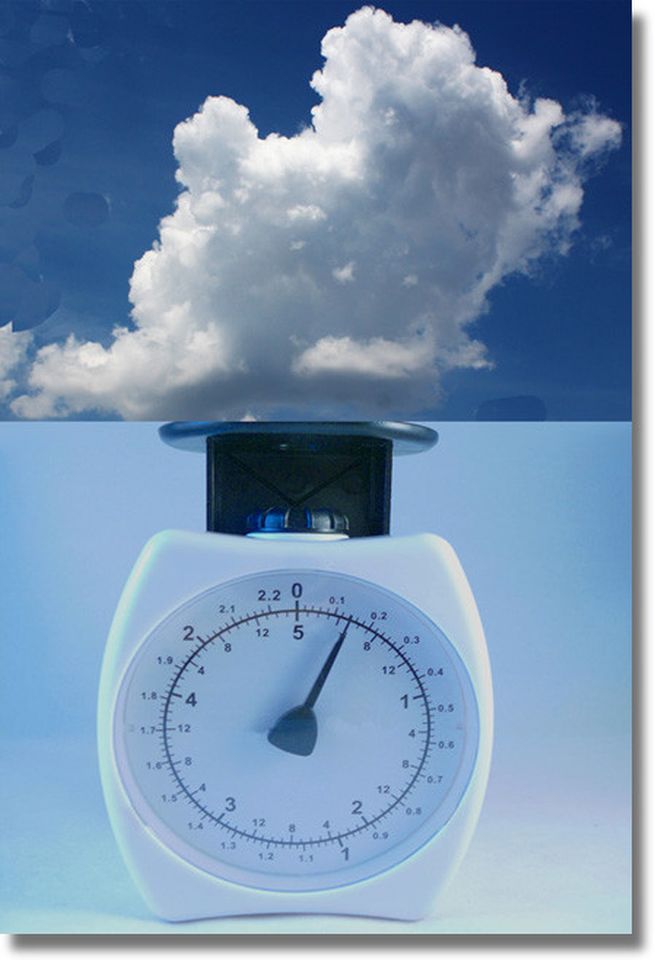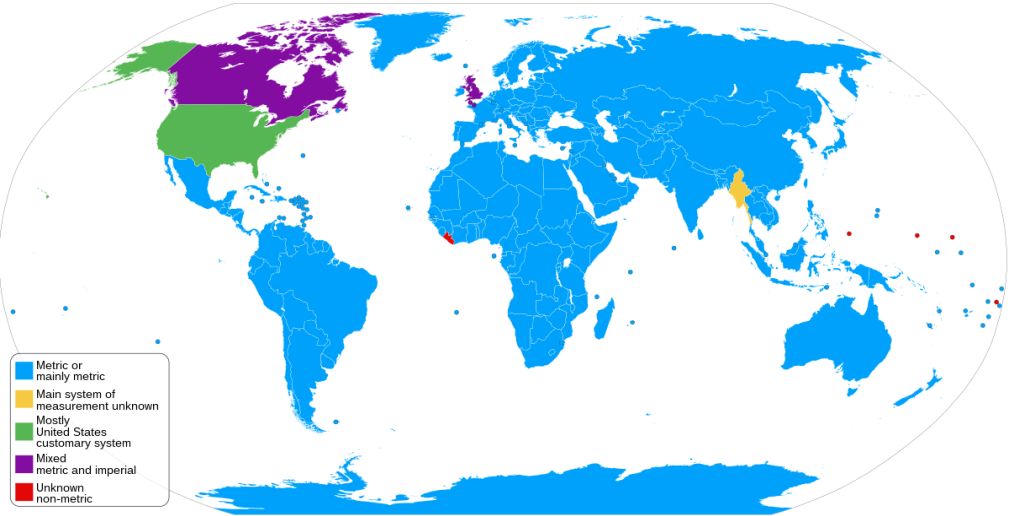
11 October 2023
How heavy is a puffy white cloud? It depends on how big it is.
According to USGS, an average 1 kilometer by 1 kilometer cumulus cloud weighs about 1.1 billion pounds.
Notice that this calculation uses the metric system for the cloud’s dimensions because it’s so much easier to calculate the weight of a cloud using those units.
When the metric system began in France in the 1790s, the units had Earth measurements as their basis. A kilogram was the mass of water in a 10cm x 10cm x 10cm container (a litre). The cloud answer, above, was calculated in metric and expressed in kilograms, then translated to U.S. customary pounds.
Did you know that we use two measuring systems in the U.S.? Everyday things are described in U.S. customary measures (inches, feet, pounds) but, as described in Wikipedia, science, medicine, electronics, the military, automobile production and repair, and international affairs all use the metric system. Also, most packaged consumer goods in the U.S. have to be labeled in both customary and metric units.
All birds are measured in grams and centimeters. I can tell this common yellowthroat is being banded in the U.S. because there are inches on that ruler. But his tail is about 4.5cm.

The U.S. is one of three major countries that do not universally use the metric system.

Why haven’t we completely adopted the metric system?
It comes down to three things: Time, Money and Congress. The change will cost time and money for U.S. industry, and designating an official measurement system requires an act of Congress. Whenever the subject comes up, lobbyists convince Congress to say “No.”
So for now we use two measuring systems.
p.s. Grams and pounds do not measure the same thing at all. Grams are a measure of mass (a fundamental property of matter). Pounds are a measure of force (the force of gravity on a mass).
If your mass is 68 kilograms, you are …
68 kg in Europe
150 pounds in the U.S.,
25 pounds on the Moon and still 68 kg,
0 pounds in outer space and still 68 kg
Your mass is 68 kg everywhere you go.
Read more here in Science News Explores: Explainer: How do mass and weight differ?
(credits are in the captions; click on the captions to see the originals)
Kate, you never cease to amaze with your astounding genius ability to come up with such a wide diversity of topics! Mind bogling that you came up with the topic of weight of a cloud!! Great job every day!
Hear, Hear! I totally agree. You never cease to amaze with your knowledge of subjects about nature. You should compile and publish a compendium of all your various topics.
Would be a great reference tool. Thanks for educating us every day!
What an interesting topic! Thank you for continuing to educate us!